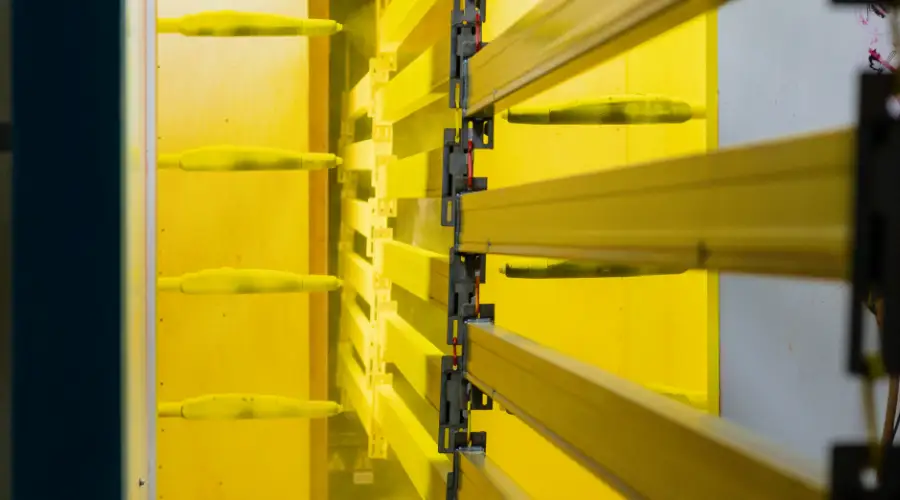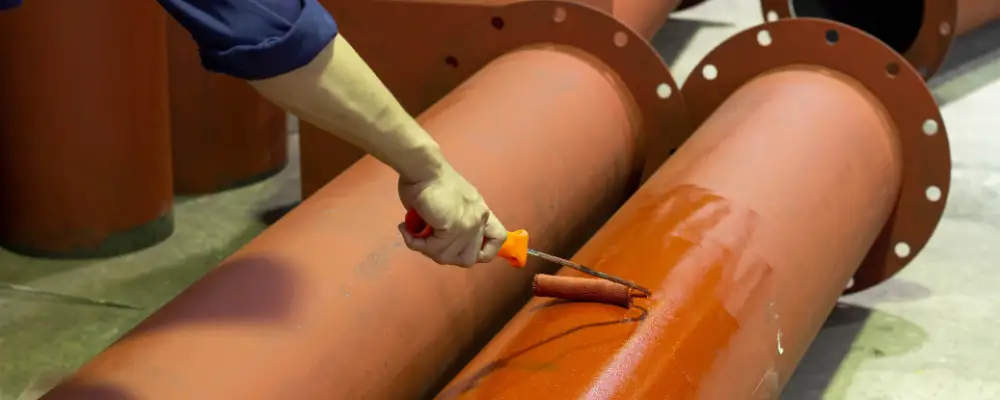Innovation is a key to the continuous evolution of the construction industry. We used to experience various advancements in every stage of building construction to obtain its maximum strength and durability. One such rapidly evolving technique is epoxy coating, which prevents steel from corrosion and deterioration.
As a builder or engineer, you are aware of the costly impacts of rust or corrosion formation on materials. To avoid those serious consequences, focus more on material selection. Whether it is commercial building or residential construction, being aware of precaution methods helps you stay away from future problems. Read on to learn more about epoxy-coated steel and its importance in structure.
What is Epoxy-Coated Steel
Epoxy coating is an additional layer applied over the reinforcement bars, such as steel. This shield is constructed using epoxy resin and a hardening agent to fight against corrosion and rust formation. In general, epoxy is a thermosetting polymer formed due to the chemical reaction between polyamine hardener and an epoxide resin. The cross-linking process of these two components makes the material extremely hard, durable and chemically resistant.
However, when the material has a longer exposure to humidity or moisture content, it tends to lose its structural integrity and longevity. This method is well-known to be used in industrial concrete floors to extend their strength and durability.
Benefits of Epoxy Coated Steel
Here are the lists of benefits you can expect when you install the epoxy-coated steel:
Non-Toxic: Epoxy coating steel is not only durable but also eco-friendly. Corrosion is created when the metal or material is continuously exposed to changing environmental conditions like air, moisture, and heat. With the high cohesion properties of epoxy, fumes will not react easily with air or water. Additionally, the fewer chemicals used in the coating don’t create any harmful reaction to the environment.
Easy Maintenance: Epoxy coating makes the surfaces smooth and hard, which makes them easy to wash off. Unlike regular material, the stains will no longer stay on the surface. This method is particularly suitable for the food-related industries, where cleaning is a primary and significant one.
Highly Durable: Once the epoxy coating cures well, the surface becomes hard and durable. Before this innovation, manufacturers used to protect the material with enamel paint, which seemed cheaper and needed frequent maintenance. Luckily, epoxy coating provides a minimum of five years’ performance, even when the material is exposed outdoors.
Chemical Resistant: While coming to the industrial setting, materials like storage tanks may often come into contact with harmful chemicals. If it starts to corrode, it can have a significant impact on overall production and potentially lead to massive destruction. When it is epoxy-coated, you can avoid such serious contaminations and be free of frequent repair and replacement.
Weather Resistant: If the material is coated with paint, its performance rate is likely to be reduced if it is exposed to the environment for an extended period, such as extreme temperatures, air, or moisture. This epoxy coating is water resistant; with no extra effort, you can place the tanks or other applications outdoors.
Applications of Epoxy Coated Steel

The usage of epoxy-coated steel has increased in recent times, and some of them are discussed below:
- Structural integrity and longevity are paramount for various heavy constructions, such as parking areas, highways, marine structures, and bridges. Using epoxy-coated steel can enhance its corrosion-resistant properties of steel with minimal maintenance.
- Sensitive industrial settings require extra care while transporting fluids and gases, where the pipes are highly susceptible to steel rust formation. Using epoxy-coated pipes can protect the tank surface from severe damage and prevent the infiltration of corrosive agents.
- Utilization of epoxy-coated rebar can typically improve durability, suitable for use in high-rise buildings and residential and commercial constructions. With no longer repair and replacement, you can acquire greater performance.
How is Epoxy Coated Steel Manufactured
The manufacturing process of epoxy coating steel needs serious concern to ensure optimal performance. Here are those meticulous steps involved in it:
Surface Preparation: A key to improving the overall performance and longevity of epoxy coating rebar. A clean and neat surface ensures a proper adhesion between metal and epoxy resin. Therefore, remove the dust, rust, and other contaminants present on the surface before working.
Apply Epoxy Resin: Apply epoxy mortar and resin over the metal surface using some specialized methods like dipping or spraying. Pay close attention to the coating thickness to achieve the desired performance.
Curing: It is a critical factor that determines the hardness and durability of the protective layer. Once the coating is done, let it sit for an appropriate time to cure well.
Quality Testing: Quality checking is paramount to evaluate the bond between the metal surface and epoxy coating. It ensures whether the metal is ready to withstand mechanical and environmental impacts.
How Long Does Epoxy Coated Steel Last?
Epoxy coating on the metal surface can last for 5 to 20 years and more. However, it is influenced by several significant factors, such as
- Higher thickness can last longer than you expect.
- The quality of the manufacturing process and application techniques determines the overall durability and longevity.
- Regular cleaning and maintenance is a key to significantly improving the lifetime of epoxy coating.
- The exposure to severe environmental factors like extreme chemicals, water, air, or temperature can impact the coating over time.
- The type of epoxy coating also matters when it comes to the durability.
Cost of Epoxy Coated Steel
The cost of epoxy coating in India is not fixed. It may vary due to various parameters such as type of steel, order quantity, supplier, location, grade, and more. Still, it approximately ranges from Rs. 40 to 75 per kg. You can check at your location and choose a reliable supplier according to your needs.
Final Wordings
In conclusion, epoxy coating is a simple and cost-effective way to protect your material from serious corrosive damage. It is an essential component for any commercial, residential, and industrial setting, especially for reinforced concrete structures. This coating acts as a barrier against chemical and environmental conditions and other corrosive agents.

